December 23 stands as one of history’s most eventful days, witnessing the rise and fall of empires, groundbreaking discoveries, and moments that shaped our modern world across centuries of human achievement.

Politics and Government Events on December 23
1905 – Tampere Conference Brings Future Soviet Leaders Together
Vladimir Lenin and Joseph Stalin met for the first time at the Tampere conference in Finland. This historic encounter would prove pivotal in shaping the future of the Russian Revolution.
The meeting established crucial political alliances that would later transform the Soviet Union. Both men were still relatively unknown revolutionary figures at this point in their careers.
1913 – Federal Reserve System Established in America
President Woodrow Wilson signed the Federal Reserve Act into law, creating the United States’ central banking system. This landmark legislation fundamentally restructured American monetary policy and financial regulation.
The new system provided greater stability to the nation’s banking sector during economic turbulence. Wilson’s signature established the framework that continues to govern American monetary policy today.
1919 – Britain Passes Revolutionary Gender Equality Law
The Sex Disqualification (Removal) Act 1919 became law in the United Kingdom, eliminating legal barriers preventing women from entering professions. This groundbreaking legislation opened doors to careers previously restricted to men only.
Women gained access to the legal profession, civil service, and university positions for the first time. The act represented a crucial step toward gender equality in British society.
1970 – Congo Becomes Single-Party State
The Democratic Republic of the Congo officially transformed into a one-party state under President Mobutu Sese Seko. This political restructuring consolidated power and eliminated opposition parties throughout the nation.
The change marked the beginning of decades of authoritarian rule in the central African nation. Mobutu’s regime would control Congolese politics for the next quarter-century.
1990 – Slovenia Votes for Independence from Yugoslavia
Slovenian voters overwhelmingly supported independence from Yugoslavia, with 88.5% of the electorate favoring separation. This decisive referendum result set the stage for Slovenia’s eventual independence declaration.
The vote represented the first major crack in Yugoslavia’s federal structure. Slovenia’s peaceful transition would contrast sharply with the violent breakup occurring elsewhere in the Balkans.
2007 – Nepal Agrees to Abolish Monarchy
Political leaders reached an agreement to abolish the Kingdom of Nepal and establish a federal republic. The Prime Minister would assume the role of head of state in the new governmental structure.
This historic accord ended centuries of royal rule in the Himalayan nation. The agreement represented a peaceful transition following years of civil conflict and political instability.
Military and Naval History on December 23
1914 – Tragic Friendly Fire Incident During Battle of Sarikamish
Ottoman forces mistakenly attacked their own troops during the Battle of Sarikamish, believing them to be Russian soldiers. The devastating friendly fire incident killed 2,000 Ottoman soldiers and wounded many more.
The tragedy highlighted the confusion and harsh conditions plaguing the Ottoman campaign. Winter warfare in the Caucasus Mountains proved particularly challenging for military operations.
1914 – ANZAC Forces Arrive in Egypt
Australian and New Zealand Army Corps troops landed in Cairo, Egypt, as part of the British Empire’s World War I mobilization. These forces would later play crucial roles in the Gallipoli campaign and Middle Eastern theaters.
The arrival marked the beginning of the ANZAC legend in military history. These troops would become renowned for their courage and tenacity in subsequent battles.
1916 – Allied Victory at Battle of Magdhaba
Allied forces achieved a decisive victory over Turkish troops at the Battle of Magdhaba in the Sinai Peninsula. This success secured important territory and demonstrated growing Allied coordination in the Middle Eastern theater.
The battle marked a turning point in the Sinai and Palestine campaign. Allied forces gained crucial momentum that would carry them through subsequent offensives.
1941 – Japan Conquers Wake Island
The Imperial Japanese Army successfully occupied Wake Island after 15 days of fierce fighting against American defenders. This victory extended Japanese control deeper into the Pacific Ocean.
The fall of Wake Island represented one of Japan’s early Pacific War successes. American forces had mounted a heroic but ultimately unsuccessful defense of the strategic outpost.
1979 – Soviet Forces Occupy Kabul
Soviet Union military forces occupied Kabul, the capital of Afghanistan, marking the beginning of the Soviet-Afghan War. This invasion would trigger a decade-long conflict with far-reaching global consequences.
The occupation sparked fierce resistance from Afghan mujahideen fighters. The ensuing war would drain Soviet resources and contribute to the eventual collapse of the USSR.
Science and Discovery Milestones on December 23
1947 – Transistor Revolutionizes Electronics

Bell Laboratories scientists first demonstrated the transistor, a groundbreaking invention that would transform modern electronics. This tiny device would eventually replace bulky vacuum tubes in countless applications.
The transistor’s invention launched the modern computer age and enabled miniaturization of electronic devices. Its impact on technology development cannot be overstated in human history.
1954 – First Successful Kidney Transplant Performed
Doctors J. Hartwell Harrison and Joseph Murray successfully performed the first kidney transplant operation. This medical breakthrough opened new possibilities for treating patients with organ failure.
The procedure involved transplanting a kidney between identical twins to avoid rejection issues. This success paved the way for modern organ transplantation medicine.
1970 – World Trade Center North Tower Reaches Record Height

The North Tower of the World Trade Center in Manhattan was topped out at 417 metres, making it the world’s tallest building. This architectural achievement demonstrated American engineering capabilities and urban ambition.
The tower’s completion marked a new era in skyscraper construction and urban development. Its impressive height would stand as a symbol of American prosperity and architectural innovation.
1986 – Voyager Completes Historic Non-Stop World Flight
The aircraft Voyager, piloted by Dick Rutan and Jeana Yeager, landed at Edwards Air Force Base after completing the first non-stop, unrefueled flight around the world. This remarkable achievement lasted nine days and covered 25,000 miles.
The flight demonstrated advances in aircraft design and human endurance capabilities. Voyager’s success inspired future long-distance aviation endeavors and aerospace innovation.
Cultural and Arts Events on December 23
1955 – Finnish War Film “The Unknown Soldier” Premieres

Director Edvin Laine’s film adaptation of Väinö Linna’s novel “The Unknown Soldier” premiered to great acclaim. This powerful war film depicted Finland’s struggle during World War II with unprecedented realism.
The movie became a cultural phenomenon in Finland and influenced subsequent war cinema. Its honest portrayal of combat resonated deeply with audiences who had lived through the conflict.
1936 – Colombia Joins International Copyright Protection
Colombia became a signatory to the Buenos Aires copyright treaty, joining international efforts to protect intellectual property rights. This agreement helped standardize copyright protections across the Americas.
The treaty strengthened legal frameworks for protecting creative works across national boundaries. Colombia’s participation demonstrated its commitment to international cultural and legal cooperation.
Religious and Social Events on December 23
1936 – Spanish Republic Legalizes Aragon Council
During the Spanish Civil War, the Spanish Republic officially legalized the Regional Defence Council of Aragon. This action recognized local governance structures that had emerged during the conflict.
The council represented anarchist and socialist political experiments in wartime Spain. Its legalization reflected the Republic’s attempts to accommodate various leftist political movements.
1968 – USS Pueblo Sailors Released After Eleven Months
North Korea released 82 sailors from the USS Pueblo after eleven months of harsh internment. The crew’s freedom came following intense diplomatic negotiations between the United States and North Korea.
The sailors’ release ended a major international crisis that had escalated Cold War tensions. Their ordeal highlighted the dangerous nature of intelligence gathering operations during this period.
1972 – Andes Flight Disaster Survivors Rescued

Rescue teams found the 16 survivors of the Andes flight disaster after 73 days in the mountains. The survivors had resorted to cannibalism to stay alive in the harsh conditions.
Their rescue became one of the most remarkable survival stories in modern history. The ordeal tested human endurance and moral boundaries in extreme circumstances.
Business and Economic Events on December 23
1948 – Japanese War Criminals Executed
Seven Japanese military and political leaders convicted of war crimes were executed at Sugamo Prison in Tokyo. The International Military Tribunal for the Far East had found them guilty of crimes against humanity.
These executions marked a significant moment in post-war justice proceedings. The trials established important precedents for international criminal law and accountability.
2003 – Deadly Gas Field Explosion in China
An explosion at the PetroChina Chuandongbei natural gas field in Kai County, Chongqing, killed at least 234 people. The industrial accident highlighted safety concerns in China’s rapidly expanding energy sector.
The disaster prompted reviews of safety protocols at energy facilities nationwide. It became one of the deadliest industrial accidents in modern Chinese history.
2002 – Historic Drone Combat Engagement
An Iraqi MiG-25 fighter jet shot down a U.S. MQ-1 Predator drone in the first combat engagement between a conventional aircraft and an unmanned aerial vehicle. This historic encounter marked a new chapter in military aviation.
The incident demonstrated the evolving nature of modern warfare and technology. It foreshadowed the increasing importance of unmanned systems in military operations.
Transportation and Infrastructure on December 23
1950 – Korean War General Dies in Accident
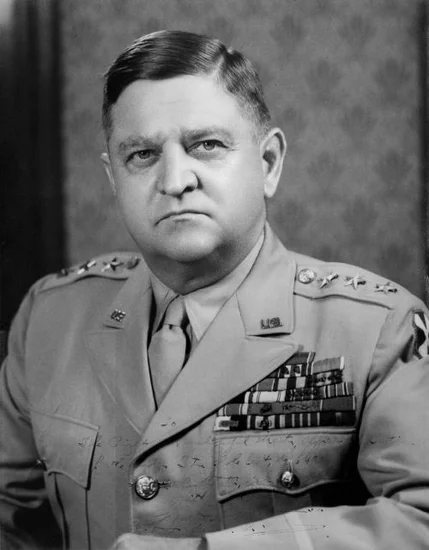
General Walton Walker died in a jeep accident and was immediately replaced by General Matthew Ridgway in commanding the Eighth United States Army. This sudden leadership change occurred during a critical phase of the Korean War.
Walker’s death necessitated rapid military reorganization during active combat operations. Ridgway’s appointment would prove crucial to subsequent United Nations forces’ success.
1978 – Alitalia Flight Crashes Near Sicily

Alitalia Flight 4128 crashed into the Tyrrhenian Sea while approaching Falcone Borsellino Airport in Palermo, Italy, killing all 108 people aboard. The disaster shocked the aviation industry and prompted safety investigations.
The crash highlighted challenges faced by commercial aviation during adverse weather conditions. It led to improved approach procedures and safety protocols at airports worldwide.
1984 – Soviet Aircraft Disaster in Siberia

Aeroflot Flight 3519 crashed while attempting an emergency landing at Krasnoyarsk International Airport after experiencing an engine fire. The accident killed 110 of the 111 people on board.
The sole survivor’s account provided crucial information about the aircraft’s final moments. This tragedy led to enhanced emergency procedures and aircraft safety systems.
Sports and Recreation on December 23
1972 – Immaculate Reception Creates NFL Legend
Franco Harris caught the famous “Immaculate Reception” to give the Pittsburgh Steelers their first playoff victory, defeating the Oakland Raiders. This miraculous catch became one of the most celebrated plays in NFL history.
The play occurred with seconds remaining and the Steelers trailing by a point. Harris’s catch and subsequent touchdown run launched the Steelers’ dynasty of the 1970s.
1972 – Devastating Earthquake Strikes Nicaragua
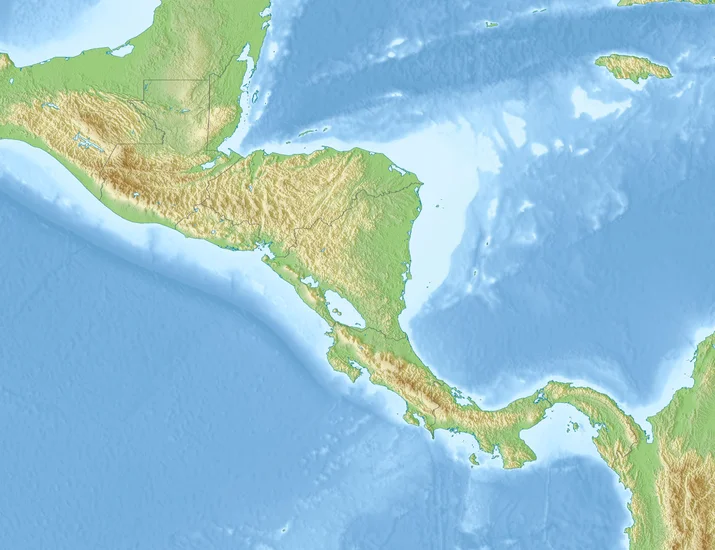
A magnitude 6.5 earthquake devastated Managua, Nicaragua’s capital, killing more than 10,000 people. The disaster destroyed much of the city’s infrastructure and left hundreds of thousands homeless.
The earthquake prompted massive international relief efforts and reconstruction programs. It also contributed to political instability that would plague Nicaragua for decades.
2008 – Military Coup in Guinea
A military coup occurred in Guinea just hours after President Lansana Conté’s death. The rapid seizure of power demonstrated the fragility of political institutions in the West African nation.
The coup leaders suspended the constitution and dissolved government institutions. This event marked the beginning of a period of military rule and political uncertainty.
Notable Births on December 23
1918 – Helmut Schmidt, German Chancellor
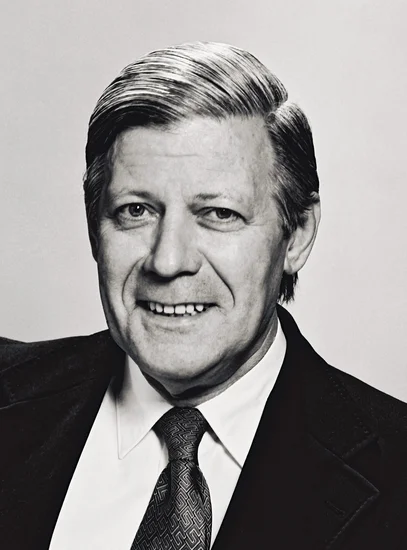
Helmut Schmidt was born in Hamburg, Germany, beginning a life that would see him become one of Europe’s most respected political leaders. His early experiences during World War II shaped his pragmatic approach to governance.
Schmidt served as West Germany’s Chancellor from 1974 to 1982 during crucial Cold War years. His leadership helped maintain NATO unity and European economic stability during turbulent times.
1933 – Emperor Akihito of Japan
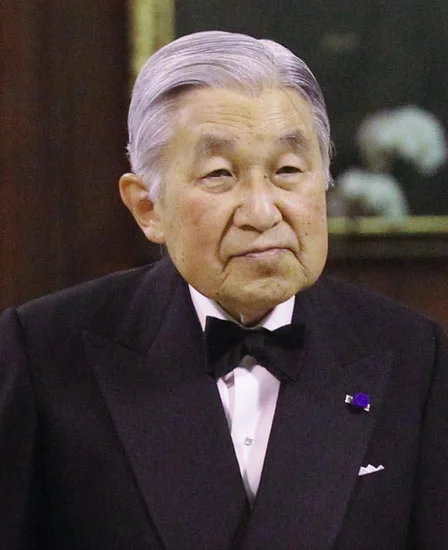
Akihito was born as Crown Prince of Japan, destined to become the nation’s 125th Emperor. His upbringing during World War II and its aftermath profoundly influenced his later reign.
As Emperor, Akihito worked to modernize the monarchy and strengthen Japan’s international relationships. His reign from 1989 to 2019 saw Japan emerge as a major global economic power.
1943 – Harry Shearer, American Entertainment Icon

Harry Shearer was born in Los Angeles, California, beginning a career that would span comedy, music, and voice acting. His early interest in radio broadcasting shaped his distinctive comedic style.
Shearer became famous as a cast member of “This Is Spinal Tap” and as the voice of multiple characters on “The Simpsons.” His satirical work has influenced American comedy for decades.
1962 – Stefan Hell, Nobel Prize-Winning Physicist

Stefan Hell was born in Romania, beginning a scientific career that would revolutionize microscopy techniques. His early fascination with optics led to groundbreaking research in cellular imaging.
Hell won the Nobel Prize in Chemistry in 2014 for developing super-resolution fluorescence microscopy. His innovations allowed scientists to observe living cells with unprecedented detail.
1963 – Donna Tartt, Acclaimed American Author

Donna Tartt was born in Greenwood, Mississippi, showing early promise as a writer and storyteller. Her Southern upbringing deeply influenced her literary voice and themes.
Tartt gained international recognition for novels including “The Secret History” and “The Goldfinch.” Her meticulous writing style and psychological depth earned her the Pulitzer Prize for Fiction.
1967 – Carla Bruni, French First Lady and Singer

Carla Bruni was born in Turin, Italy, beginning a multifaceted career in modeling, music, and politics. Her artistic family background encouraged her creative pursuits from an early age.
Bruni achieved success as a supermodel before transitioning to music and later becoming France’s First Lady. Her marriage to President Nicolas Sarkozy brought her international political prominence.
Notable Deaths on December 23
1948 – Hideki Tojo, Japanese Prime Minister
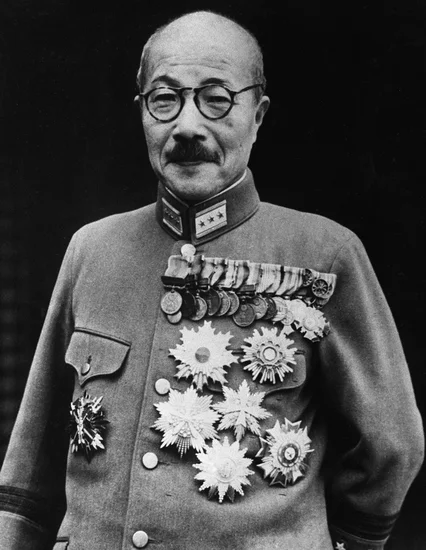
Hideki Tojo, Japan’s wartime Prime Minister and military leader, was executed for war crimes at Sugamo Prison in Tokyo. His leadership during World War II had made him one of the most controversial figures in Japanese history.
Tojo’s execution marked the end of Japan’s militaristic leadership and the beginning of democratic reconstruction. His death symbolized Japan’s transition from imperial aggression to peaceful international cooperation.
1953 – Lavrentiy Beria, Soviet Secret Police Chief

Lavrentiy Beria, head of the Soviet secret police and one of Stalin’s most feared lieutenants, was executed after a brief trial. His death marked the end of the most brutal period of Soviet internal repression.
Beria’s execution followed Stalin’s death earlier that year and represented a power struggle within the Soviet leadership. His removal helped pave the way for Khrushchev’s eventual rise to power.
1972 – Andrei Tupolev, Aviation Pioneer
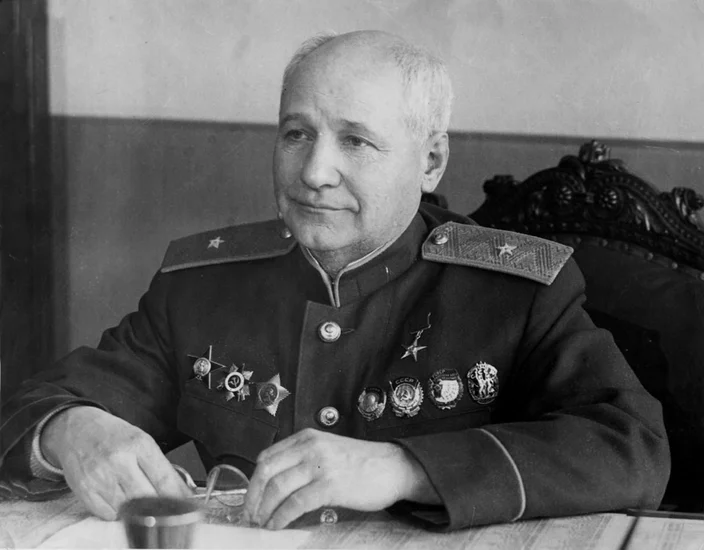
Andrei Tupolev, the legendary Soviet aircraft designer, died at age 84 after revolutionizing aviation technology. His designs included the Tu-95 bomber and Tu-104 passenger aircraft that transformed Soviet aviation.
Tupolev’s innovations helped establish the Soviet Union as a major aerospace power during the Cold War. His aircraft designs influenced commercial and military aviation development worldwide.
2000 – Victor Borge, Danish-American Entertainer

Victor Borge, the beloved Danish-American comedian and pianist, passed away at age 91 after decades of entertaining audiences. His unique blend of music and comedy made him an international sensation.
Borge’s “comedy in music” performances delighted audiences across multiple generations. His ability to combine classical music with humor created a distinctive entertainment style that influenced countless performers.
2013 – Mikhail Kalashnikov, Weapons Designer
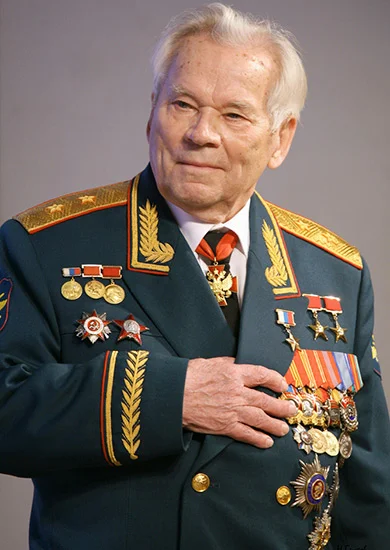
Mikhail Kalashnikov, inventor of the AK-47 assault rifle, died at age 94 after creating one of history’s most influential weapons. His design became the world’s most widely used automatic rifle.
Kalashnikov’s invention profoundly impacted global warfare and political conflicts for decades. Despite his weapon’s widespread use, he remained conflicted about its role in human violence throughout his later life.
2021 – Joan Didion, American Literary Icon

Joan Didion, the influential American writer and journalist, passed away at age 87 after a distinguished literary career. Her precise prose style and cultural criticism defined American non-fiction writing for generations.
Didion’s works, including “The Year of Magical Thinking” and “Slouching Towards Bethlehem,” captured the essence of American society and personal grief. Her literary contributions earned her numerous awards and lasting cultural influence.
Holidays and Observances on December 23
Festivus – The Alternative Holiday

Festivus, the secular holiday popularized by the television sitcom “Seinfeld,” is celebrated as an alternative to traditional Christmas festivities. This humorous observance includes unique traditions like the “Airing of Grievances” and “Feats of Strength.”
The holiday has gained a cult following among those seeking non-religious seasonal celebrations. Its satirical nature reflects modern society’s complex relationship with traditional holiday customs.
Victory Day in Egypt
Egypt observes Victory Day on December 23rd, commemorating military achievements and national sovereignty. This observance reflects the country’s pride in its military history and independence struggles.
The holiday serves as an important reminder of Egypt’s role in regional conflicts and its journey toward national self-determination. It strengthens national unity and honors those who served in the armed forces.
Night of the Radishes in Mexico

Oaxaca City, Mexico, celebrates the Night of the Radishes with elaborate carved radish displays and artistic competitions. This unique festival combines agricultural tradition with artistic creativity in a distinctly Mexican celebration.
Local artisans create intricate sculptures from radishes, competing for prizes and community recognition. The festival demonstrates how traditional agricultural products can become sources of cultural expression and community pride.
